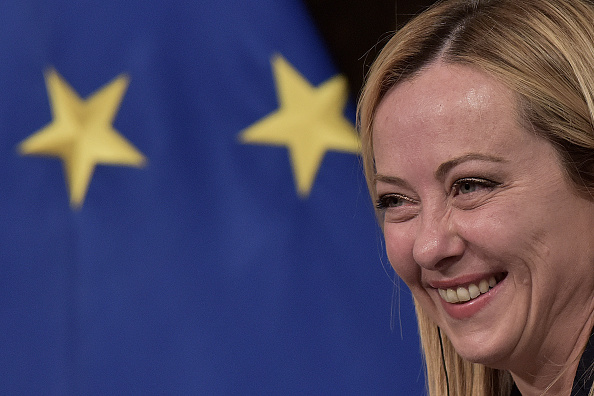The European Union’s first directive on combating sexual violence against women has hit a roadblock.
Just 12 Member States are so far willing to define “rape” as the “absence of consent”.
As the European elections 2024 in June require a decision to be reached by the end of January, the EU now risks implementing a directive on violence against women that omits rape entirely.
Some EU countries use an older definition of the sex crime, based on the use of force rather than a lack of consent.
Others, including Germany and the Netherlands, do define rape in terms of consent but are unwilling, apparently on sovereignty grounds, to overrule countries defining it differently.
French President Emmanuel Macron, for instance, also argues the interpretation of criminal law is a matter for individual Member States alone.
In June last year, the European Council bowed to pressure and removed the “violence against women” directive’s Article 5. That would have made “non-consensual” sex acts a criminal offence across the EU.
Both the European Commission and the European Parliament, though, support leaving the article in place.
MEPs backing the directive in the Parliament say they will not be satisfied with such regarding violence against women if it entirely omits rape.
That effectively means convincing the European Council to change its mind – persuading a majority of Member States to include “not only a rape paragraph, but a consent-based rape paragraph that only a ‘yes’ is a ‘yes’,” said Swedish MEP Evin Incir, the proposed legislation’s co-rapporteur.
In light of the situation, Lucia Cortesi, a postgraduate student and activist in NGO Amnesty International’s Let’s Talk About Yes sexual-consent campaign, said: “I’m not really optimistic about how long it is going to take for this proposal to get accepted by all the Member States.
“The fact that this has been vetoed by, among others, both Germany and France shows how lots of countries are not exactly eager to give up their sovereignty concerning this issue,” she added.
Eleni Vasileiou, who works in Brussels for US-based multinational law firm Dentons Global Advisors, said that while Macron argues criminal law is a matter for Member States, “academics have drafted an open letter on why this is not the case”.
Article 83 of the EU Treaty on the Functioning of the bloc allows it to establish criminal offences for so-called “Eurocrimes”, including corruption, terrorism and sexual exploitation.
In 2011, the EU used the sexual exploitation clause to pass legislation against child sexual abuse.
The deleted Article 5 uses the consent-based definition of rape from the Istanbul Convention, which entered into force in 2014 and was signed by France, Germany and the Netherlands.
Yolanda López Hernán, a lawyer who has advised the EU on gender issues, said laws that “define rape and sexual violence through the use of force instead of consent” still reflect the “perception of rape as if perpetrated by a stranger in a dark alley – even though the actual perpetrators oftentimes belong to the victim’s family or circle of friends and acquaintances”.
The apparent shift away from regulations focusing on a lack of consent is “still very recent and implies a whole different concept of not only sex but women’s autonomy and the power imbalances between them and men”, she added.
Núria Querol, a medical doctor and criminology professor at the University of Barcelona, said: “Many victims develop what is known in neuroscience as ‘tonic immobility’, a state in which they are unable to move, react and give consent.”
Such a response “could be interpreted as consent, when it is actually not”, she added.
Macron, who in 2017 said gender equality would be his presidency’s “great cause”, has been criticised by his own party’s MEPs over vetoes including rape in the directive.
An open letter signed by 23 MEPs from the Renew Group, to which Macron’s Renaissance party belongs, stated: “At a time when one woman in 20 is a victim of rape in Europe, the Byzantine legal arguments put forward by the Member States give a feeling of total disconnection from the suffering experienced by the victims.”





